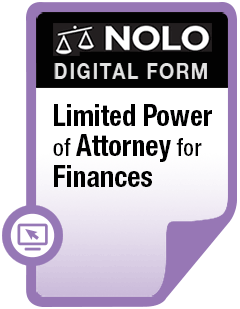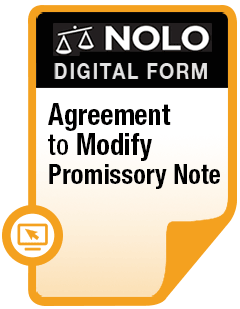Read about the laws that protect consumers from telemarketing and scammer robocalls.
Some robocalls (automated telephone calls that deliver recorded messages) are useful. For example, calls that advise you about a school closing, potential credit card fraud, and medical notifications are to your benefit.
But robocalls from telemarketers and scammers are annoying and, in some cases, costly and dangerous. Telemarketers often originate calls using automatic telephone dialing systems to send out thousands of calls per minute, sometimes using fake or misleading names or bogus area codes designed to deceive you into answering the call. This practice is called "spoofing."
In this article, you'll learn about federal laws, like the Telephone Consumer Protection Act, and some state laws, that protect consumers from telemarketer and scammer robocalls. But will these laws really stop annoying robocalls? They help, but only to an extent. It's impossible to prevent all scammer calls from getting through.
Federal Laws That Govern Unwanted Calls
Federal laws like the Telephone Consumer Protection Act, the Telemarketing Sales Rule, and the Federal Communication Commission Rule restrict unwanted calls.
Telephone Consumer Protection Act
Congress passed the federal Telephone Consumer Protection Act (TCPA) (47 U.S.C. § 227 (2025)) in response to an increasing number of consumer complaints about telemarketer calls. The primary purpose of the TCPA is to reduce the number of nuisance calls that consumers receive and to protect a consumer's right to privacy.
What the TCPA restricts. The TCPA explicitly restricts the practices of telemarketers and their use of automated dialing and prerecorded voice messages with regard to cell phones, residential phone lines, text messages, and unsolicited faxes. It also restricts telemarketers from calling consumers registered with the federal do not call registry. Some states, like Florida, have their own do not call registries and laws that restrict telemarketing.
Under the TCPA, the Federal Communications Commission can assess a penalty for intentional violations of up to $10,000 per call.
Eleventh Circuit strikes down FCC one-to-one consent rule for robocalls. In 2023, the Federal Communications Commission promulgated a rule requiring "one-to-one consent" for obtaining express written consent to solicit customers via phone call or text using an autodialer or prerecorded voice message. Basically, the rule required telemarketers to get consumer consent to receive robocalls and robotexts one seller/brand at a time instead of allowing a single consent to apply to multiple businesses or sellers. However, on December 18, 2024, the U.S. Court of Appeals for the Eleventh Circuit heard arguments in Insurance Marketing Coalition Limited v. Federal Communications Commission, a case brought by the marketing trade association to challenge the one-to-one consent rule. And, on January 27, 2025, the Eleventh Circuit vacated the rule. It said the FCC exceeded its statutory authority under the TCPA when passing the rule.
State laws. Some states, like Florida, Oklahoma, and Washington, have passed mini-TCPA laws. These laws generally put additional restrictions on what telemarketers may and may not do when calling consumers in those states.
Telemarketing Sales Rule
Another federal law that governs telemarketing calls is the Federal Trade Commission's Telemarketing Sales Rule. The Telemarketing Sales Rule prohibits telemarketers from calling you if you've stated that you don't wish to receive calls from them or your telephone number is on the national do not call registry.
But if the telemarketer can show that it obtained your express written consent to place calls to you or has an established business relationship with you (and you haven't said you don't want them to call you), then the telemarketer may call you. (16 C.F.R. § 310.4 (2025).)
The Federal Communication Commission Rule
The Federal Communication Commission Rule (47 C.F.R. § 64.1200 (2025)) prohibits automatic dialers with prerecorded voice messages from calling residential phone lines without the prior express written consent of the called party unless the call:
- is made for an emergency purpose
- isn't made for a commercial purpose
- is made for a commercial purpose but does not include or introduce an advertisement or constitute telemarketing
- is made by or on behalf of a tax-exempt nonprofit organization, or
- delivers a specific kind of healthcare message.
Also, telemarketers can't abandon more than three percent of all telemarketing calls that a live person answers. (A call is "abandoned" if it is not connected to a live sales representative within two seconds of the called person's completed greeting.) (47 C.F.R. § 64.1200 (2025).)
Pallone-Thune Telephone Robocall Abuse Criminal Enforcement and Deterrence (TRACED) Act
On December 30, 2019, President Trump signed the TRACED Act into law. This law makes it easier for consumers to identify robocalls so that they can avoid answering them.
The law pushes telephone companies to implement the SHAKEN/STIR system, which is an industry-developed standard designed to prevent scammers from making calls that have inaccurate caller ID information. Under the SHAKEN/STIR framework, calls from numbers that seem suspicious show up on phones with labels like "scam likely" or "spam likely."
The legislation also expands the authority of the Federal Communications Commission to impose civil penalties of up to $10,000 per call for each intentional violation and increases the time period that the Commission can take action against those who intentionally violate the law to four years.
State Laws Governing Robocalls
Some states have passed laws, and others are debating bills prohibiting certain robocalling practices. Arkansas, for example, passed a law that protects consumers in that state from spoofed robocalls. SB 514 imposes strict criminal penalties for illegal call spoofing and creates an oversight process for telecommunications providers.
Specifically, the law prohibits displaying or causing to be displayed spoofed caller ID information for any purpose. A few exceptions exist, like in matters of law enforcement and public safety.
The law also forbids a person from causing "a caller identification service to transmit misleading or inaccurate caller identification information if the purpose is to defraud, cause harm, or wrongfully obtain anything of value." Moreover, telecommunication providers must report yearly to state regulators about how they're implementing current technologies to block illegal robocalls.
Under the law, spoofing (previously a misdemeanor offense) is now a Class D felony, which means it's punishable by up to six years in prison.
Talk to a Lawyer to Learn More
If you want to learn more about the federal and state laws (if any) that apply to robocalls where you live, talk to a local consumer protection attorney.
Talk to a Lawyer
Need a lawyer? Start here.
How it Works
- Briefly tell us about your case
- Provide your contact information
- Choose attorneys to contact you
- Briefly tell us about your case
- Provide your contact information
- Choose attorneys to contact you



